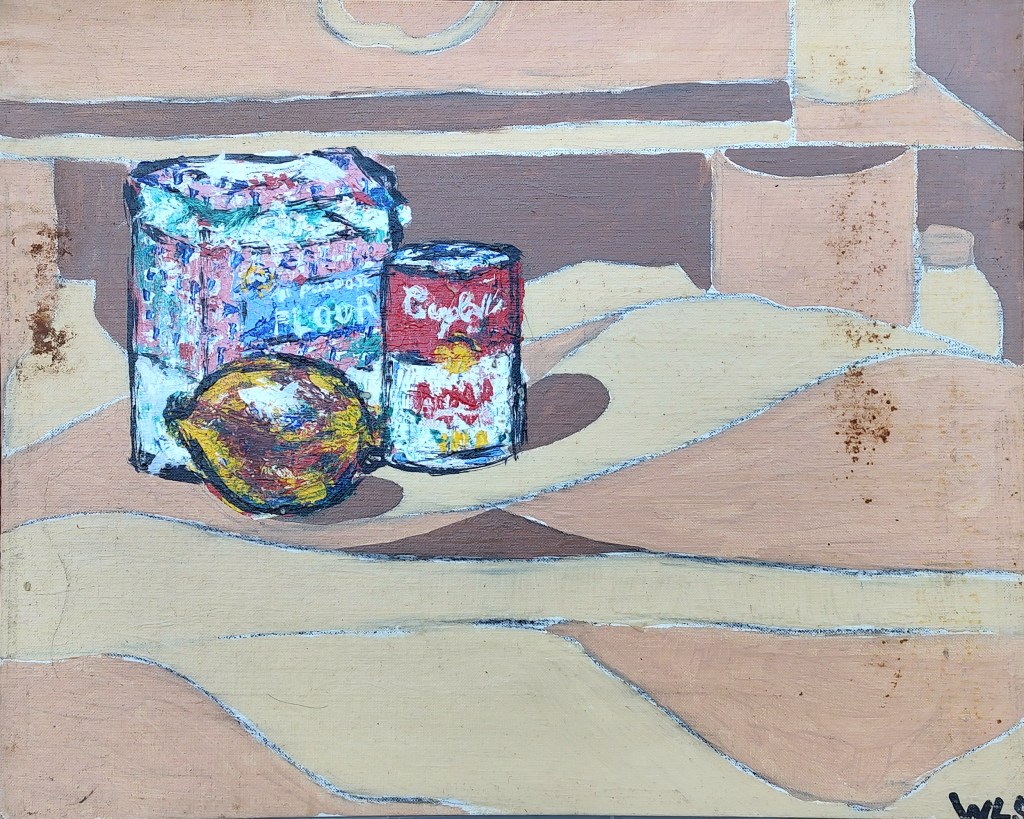
All paintings at: https://sites.google.com/view/cabinetofvanities
Acrylic on Canvas ,1970 16×20
Still life

All paintings at: https://sites.google.com/view/cabinetofvanities
Acrylic on Canvas ,1970 16×20
Still life
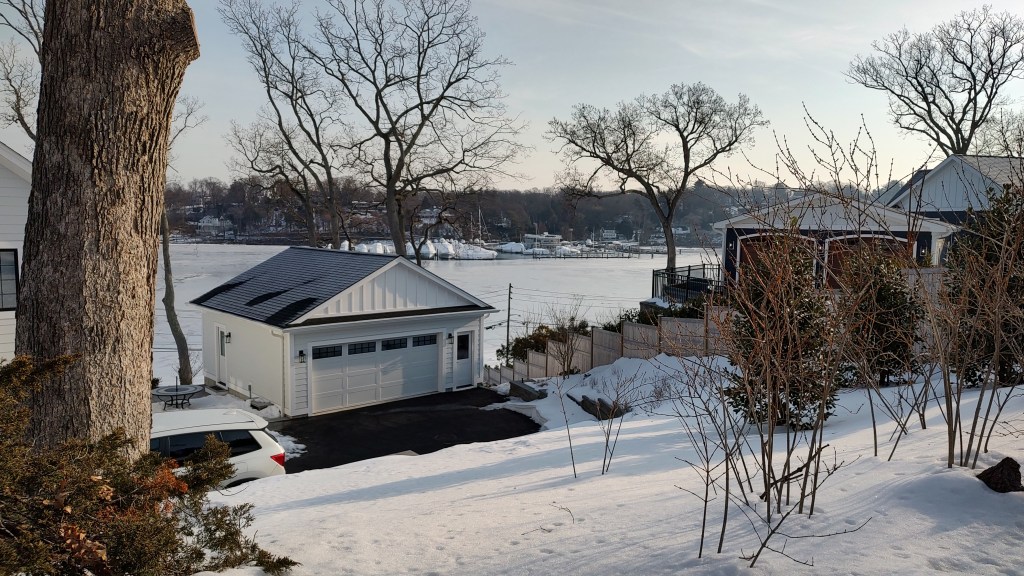
I claim to love living in the Northeast because of the seasons, but the more likely truth is because I grew up here. I do like natural markers of time, such as a noticeable solstice to indicate when winter begins, and the cold weather affecting my usual walks and yard work .
This year has been snowier and much colder than recently. Flu season is immense, and has affected me in spite of vaccination. I sit housebound, almost happily, and rejoice that I live in an era of abundant energy and goods .
I usually enter December wrapping nostalgia around the previous 11 months. At my age if I do not take care the entire past blends into a golden glow, and I quickly forget recent highlights. I accomplish my memory scrapbook with internet cleanups, visits, all the holiday chores and rituals .
And then – January. Looking forward, and during winter but spring is in view. New season tasks popping up already – taxes, travel plans, medical appointments. And a few items – not quite strong nor large enough to be considered resolutions – having to do with lifestyle, hobby, and happiness .
At the moment, however, I look out at snow, cough frequently, and too often say to myself “maybe tomorrow”. I guess concentrating on enjoying each changeable moment is also one of the benefits of very noticeable seasons .
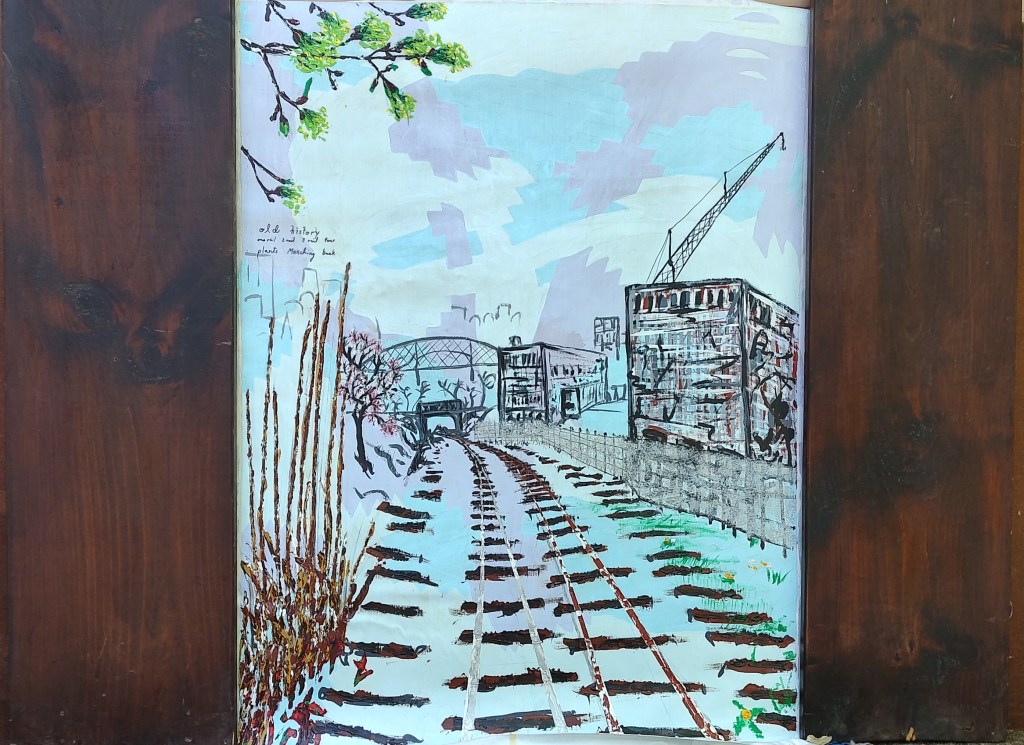
All paintings at: https://sites.google.com/view/cabinetofvanities
Acrylic on Canvas ,1975 40×30
Old history / one rail two rail three rail four / plants marching back
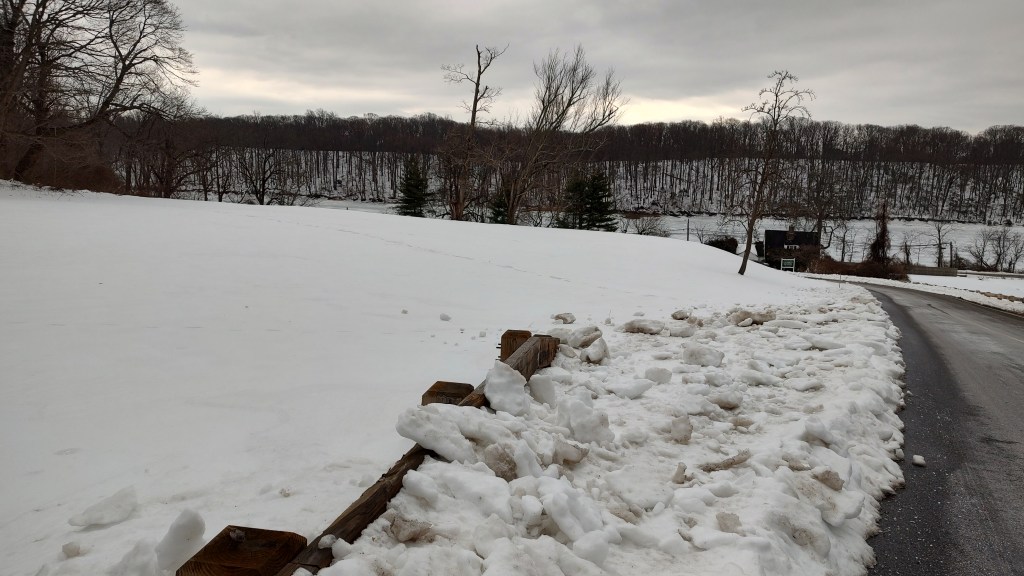
In the 1850s, the powerful Whig party of America broke up into factions and disappeared forever. The main cause was slavery, aggravated by regionalism and leaders who were unable to cope with the divisions .
I’m not sure which party will break up and vanish this time, maybe both. The formal cause will be work and wealth. There are wealthy people who work very little, and – as always – poor people who work very hard. But increasingly not only will working harder not make you wealthier, but the divisions between the classes grow sharper simply in the normal course of events as capital concentrates.
I await the equivalent of “Uncle Tom’s Cabin” to crystallize inchoate feelings into actions. But both parties seem very Whiggish, unable to formulate exactly what they are for, trying to tie together things that resist unity. It’s quite likely we emerge into an unrecognizable new era, hopefully without a destructive war .
The main battle cry on one side will probably be “security and opportunity”. On the other “liberty and merit”. The new plantation owners against the almost but not quite comfortable proletariat. And machine intelligence throwing monkey wrenches everywhere – like the telegraph, railroad, and repeating rifles in the earlier conflict .
Nobody seems to want war except for a few firebrands on each side. Each singing the same songs and nearly identical slogans .
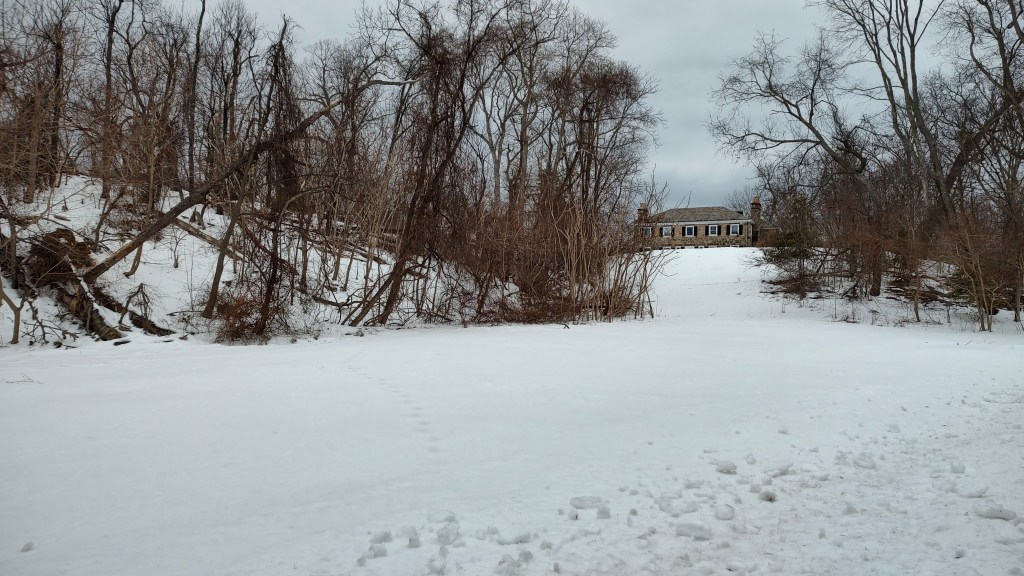
“Your eyes are bigger than your stomach” is an admonition to would-be gluttons surveying a feast. Maybe children eyeing mounds of candy, maybe revelers drinking champagne, maybe elder vacationers at a cruise ship buffet .
The implication is that short-term hedonism and overindulgence will lead to eventual pain and misery. All of us know that this is true in daily life, although unfortunately it is quite easy to ignore common sense .
Ultra-powerful magnates now suffer the same illness. They believe they can do anything of which they conceive. And no matter what visions their eyes view at the moment, their imagination conjures more. More. Bigger, longer, stronger. Candy without end .
I suspect indigestion will follow. Unfortunately, the ultra-powerful can affect us all. The present may be lean as they gobble their resources, but it is entirely possible civilization could collapse in the aftermath .
Most of those industrial paragons are macho males. One wonders if they ever had mothers who warned them about their “big eyes”. Too bad .
They are having their monstrous feast. The rest of us can only fretfully wait for the inevitable outcomes, and the nasty cleanups to follow .
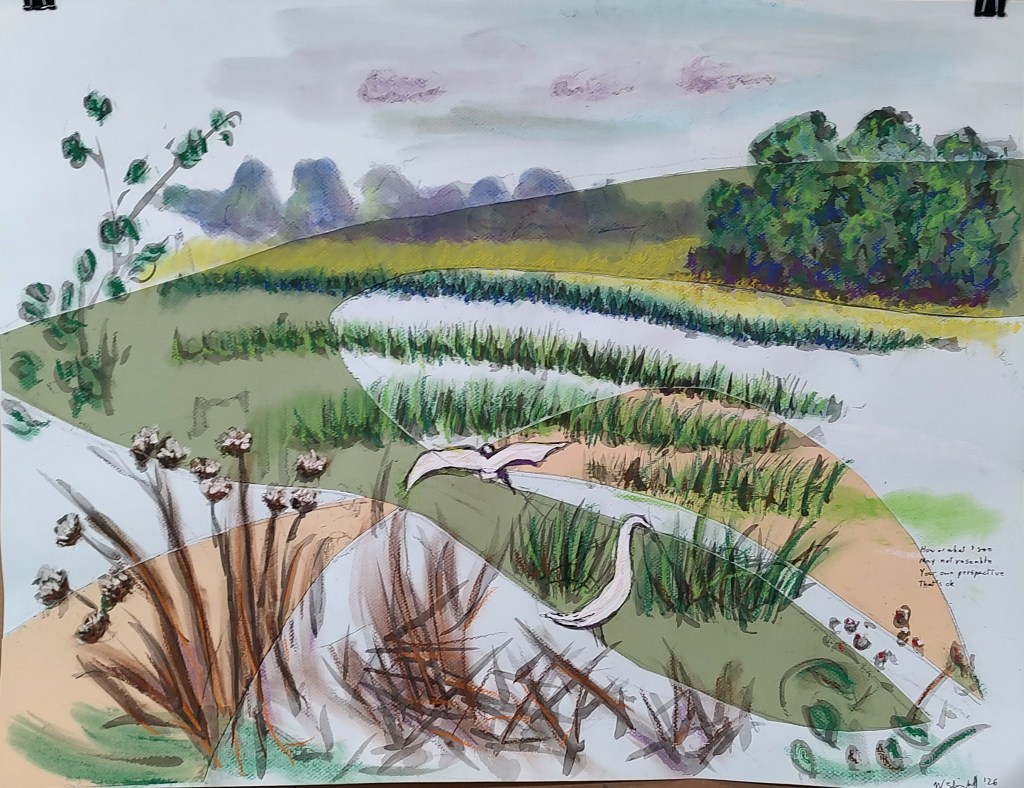
All paintings at: https://sites.google.com/view/cabinetofvanities
Pastel and Ink on collaged pastel paper ,2026 20×26
How or what I see / May not resemble / Your own perspective / That’s ok
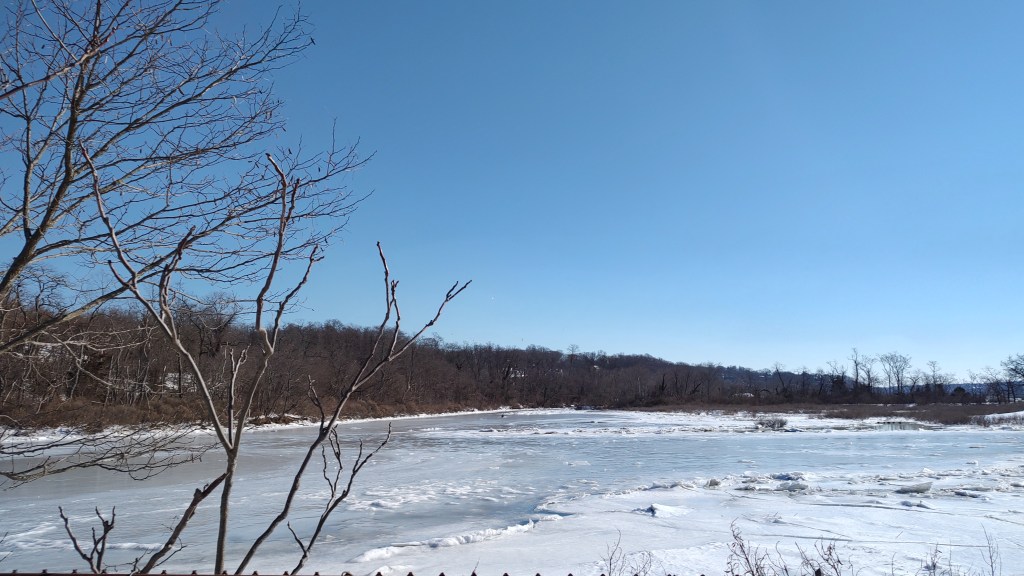
Traditional children’s fables often contain valuable nuggets of adult lifestyle philosophy. They were, when created, a form of pedagogic knowledge to teach alongside the somewhat confusing and stern biblical narratives .
The story of the golden goose is easy enough to understand, whether in short form or embroidered. Its overt message is basically not to mess with a good thing, especially one you don’t understand. Its deeper implication is to avoid letting short-term greed destroy long-term bounty .
Perhaps “golden goose” should be a required course for MBAs and venture capitalists. They all seem hell-bent on mashing our current culture – which most of us believe is (or at least was) pretty good – so that they can extract the underlying value of anything in which they have invested, or destroy anything in the way of their economic triumph .
Like the man who killed the golden goose, their blind greed may be threatening everyone’s prosperity and happiness. Some folks admit we are not quite sure how everything works, but at least for a while it has been working .
I’m hardly against progress. It’s just that I’m not sure smashing traditions or killing culture is the right way to achieve it.
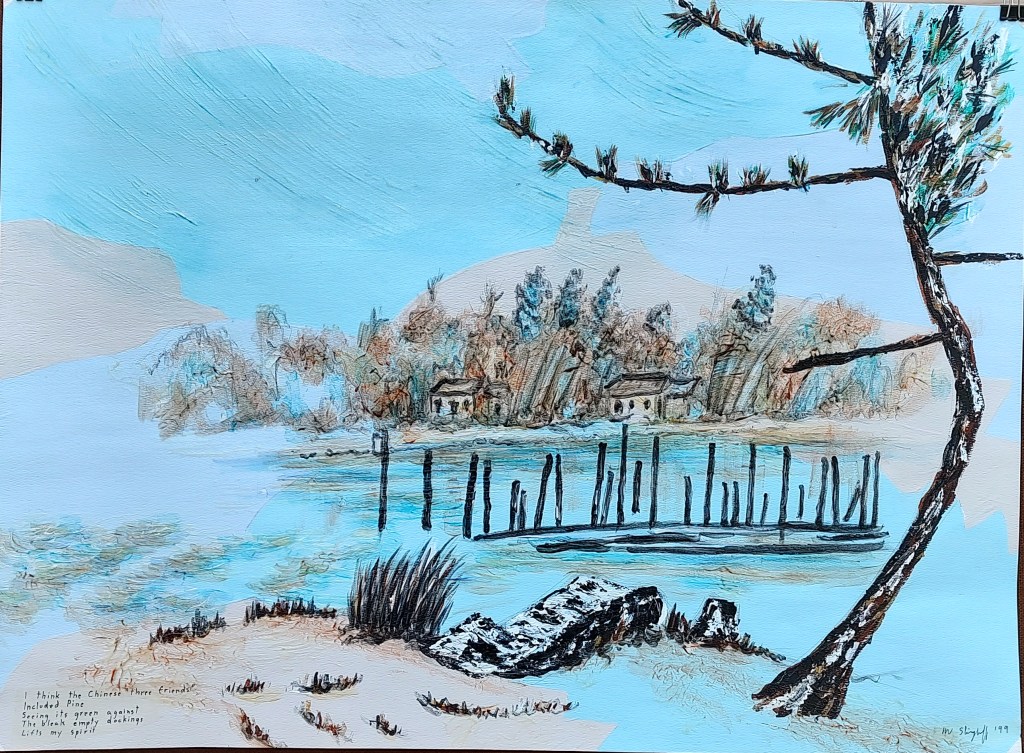
All paintings at: https://sites.google.com/view/cabinetofvanities
Acrylic on Watercolor Paper,1999 22×30
I think the Chinese “three friends” / included pine / seeing its green against / the bleak empty dockings / lifts my spirit
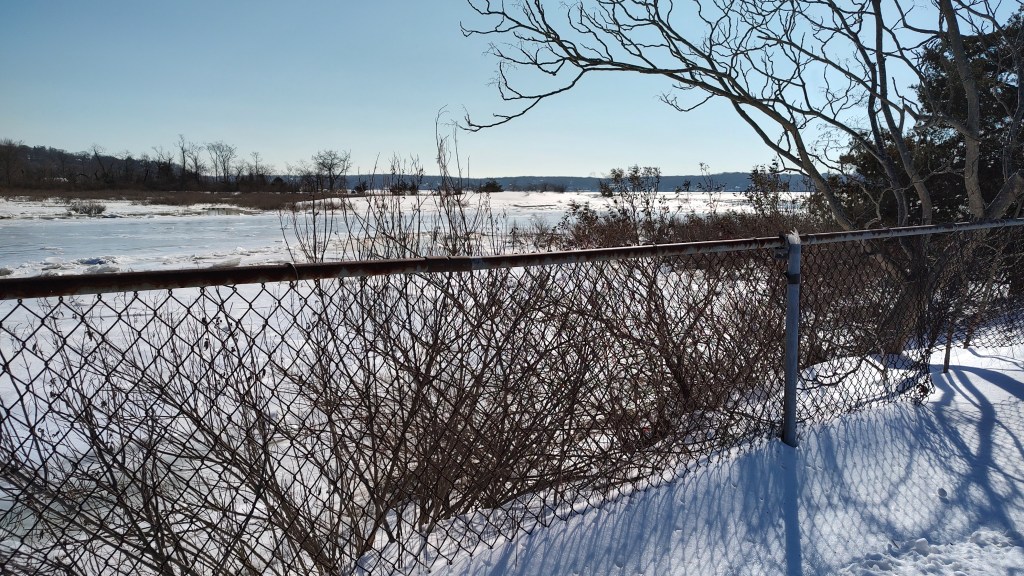
Sometime in late adolescence I read about the “dreamtime” of Australian Aborigines. Back then, it was presented as an irresponsible immersion in the moment, without regard for the past nor plans for the future. And, from the standpoint of what was still a highly puritan culture, a primitive decadence, hedonistically doing nothing to become better .
Now, as an advancing senior, I find myself also in a perpetual dreamtime. Not particularly hedonistic, but pleasant enough. The past becomes foggier each day, and the future is hardly worth thinking about. But this moment, now, is as wonderful as I wish.
Of course my original perception of ” dreamtime” was wrong. Like all human activities, it was a useful adaptation to a tough environment. More survival than hedonism. And fully sane, given the conditions .
My own dreamtime has a few aspects of that, and although my conditions are more paradisical than harsh, I inhabit the land of cockaigne, where pigs run around pre-cooked with forks stuck in them. Yet each day, even more importantly what I do each moment, is ever more precious. What I did – well, what of it? What will I will do? Forget about it .
No complaints, here at the water hole .
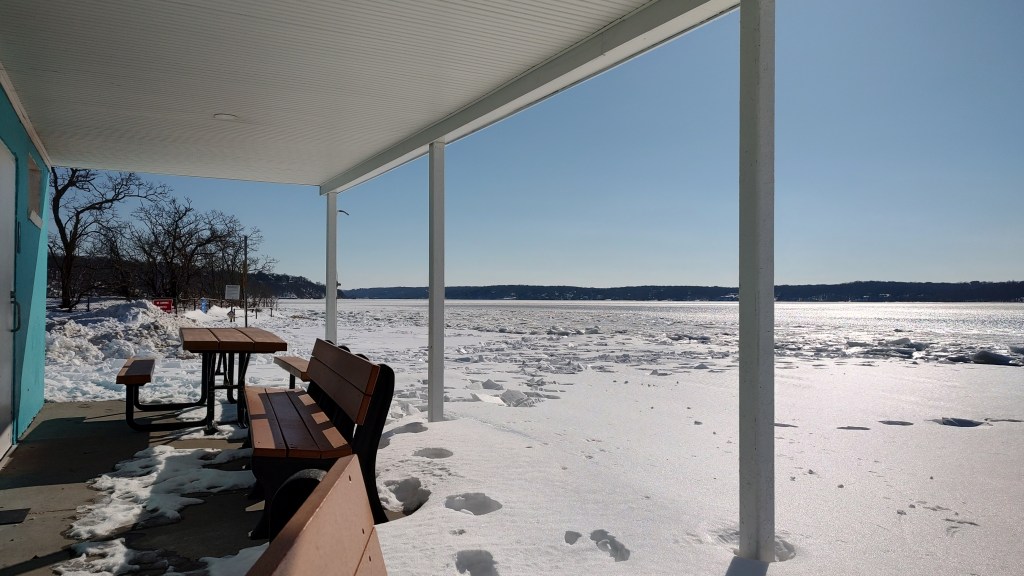
I accept that what is called the “religious impulse” is an important component of human mental sanity. It is good to understand that in terms of our senses and logic, the universe is ineffable, unknowable, and awesome. In the face of that frightening immensity, we find comfort in unsupportable (by reason) beliefs of faith .
All well and good. Each of us should happily adapt and go about our lives. Even discuss our inner convictions with others. Perhaps form common bonds, or at least a wider set of meditations .
What I can’t stand is evangelicals. Of any stripe – religious, political, nationalist, whatever. People who must convert you to the truth only they know. Who pretend to converse when all they are interested in is stomping out your “wrong” understanding. “Open dialogue” that is nothing but preaching .
If something is truly ineffable and can only be “known by faith”, there is sinister hubris in claiming any vision is the only true one. Perhaps I can make a case logically that going along with what everyone else in the culture believes is a better way of life than lonely fighting and rejection. But not because any of the beliefs are cosmically “true”.
Fervent evangelicals who prefer what is evil to me must be ignored if possible, eliminated if not. I also have a right to my irrational convictions if I do not force them on you or your life .